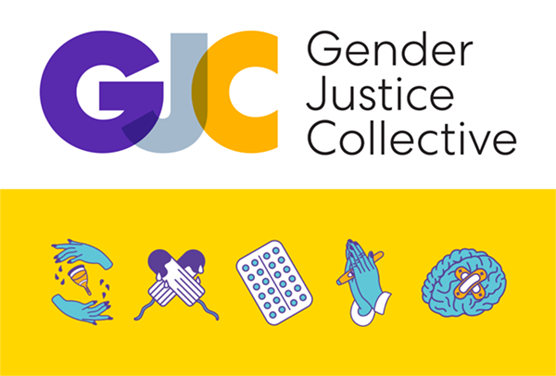Gender Justice Collective – Visible, Valued and Celebrated
Network focusing on gender issues is commissioned by the Peter McKenzie Project to develop efforts to address systemic barriers faced by low-income, single parent families
The Gender Justice Collective (GJC) is an independent, non-profit network drawn from all walks of life. They are business owners, policymakers, grandmothers, sisters, mums, aunties, mana whenua, tangata whenua, tauiwi, educators, students, workers, nurses, creatives, farmers, and much more. They use feminism as a shorthand for intersectional feminism: a feminism that is not exclusively focused on eradicating sexism, but one that is invested in dismantling all systemic hierarchies including white supremacy, patriarchy, capitalism, ableism, heterosexism, transphobia, and colonialism.
“For us, the term “gender justice” is complete equality (equal outcomes for all) and equity (equal distribution of resources, access, and opportunities) between everyone in all spheres of life. Our vision is for Aotearoa New Zealand to be a place all women are able to live in the fullness of our beings alongside those we love; where we are visible, valued and celebrated,” says Angela Meyer, GJC Co-Founder.
GJC was formed in the run-up to the 2020 Aotearoa New Zealand General Election. Angela brought together 25-plus individual women, wāhine, and women’s organisations to ask the question, “What if Aotearoa New Zealand was the best place in the world to be a woman?”
In 2020, GJC surveyed over 3,500 women, wāhine, trans, non-binary and intersex people, asking them what they most needed in order to thrive. This is the most comprehensive data set on what’s happening for women and non-binary people in Aotearoa New Zealand since the arrival of COVID-19. The data collected through the YouChoose 2020 Survey was used to rank and review each political party's policies with the result being the Election Scorecard which was published online.
One of the many major areas of concern for women and non-binary people that the research uncovered was access to healthcare, and GJC decided to prioritise this as a key advocacy issue and the first cab off the rank.
“Picking access to healthcare as the first policy issue to focus on was ambitious, given the scale and complexity of the issues. We have learned so much about the health system through our engagement with health sector experts and have found their testimony and stories about the reality “on the ground” confronting, but also hopeful about the opportunities that exist for positive systemic change. There is a caveat to that: we all have to listen to what they and women are telling us about what has to change!” says Erin Jackson, GJC Co-Founder.
Over the past 18 months, GJC has worked hard to progress this mahi. Healthcare advocacy work includes submitting and presenting to the Health Select Committee; submitting and presenting on the Pae Ora (Healthy Futures) Bill; meeting with the Minister for Health and other Members of Parliament to discuss a National Women’s Health Strategy; and supporting the Interim Health New Zealand Board with their recommendations. Additionally, GJC has worked with clinical experts in women’s health to include several other targeted recommendations that would better advance healthcare in Aotearoa New Zealand for over half of the population.
“We are advocating for the inclusion of a National Women’s Health Strategy in the current health reforms, and continue to build a strong, connected network and engaged community who are supporting our kaupapa. It feels like we, and the thousands of women and non-binary people whose voices we are representing, may be about to get this Strategy over the line,” says Erin.
As a result of strong interest in the mahi undertaken so far, Angela, Erin and another GJC Co-Founder, Tania Domett, have established Project Gender, a standalone research and campaign agency. The aim of Project Gender is to continue the important mahi of the GJC in a sustainable way, by delivering research, campaigns and projects that will strengthen gender equity in Aotearoa New Zealand.
Project Gender is being supported by the Peter McKenzie Project to look at the opportunities for systemic change to ensure greater equity for low income, single parent households. The Project consists of an environmental scan, stakeholder hui, an online survey, and focus groups, and runs from March to October 2022. But their work doesn’t stop there.
“We have also launched the Aotearoa Online Dating and Sex Survey, which is investigating how people are using dating apps: how they’re messaging, going on first dates, having sex, and entering relationships. We're particularly interested in what, if any, are the differences between how women, men and non-binary people are experiencing all of the above and will be using the insights we gather to develop real-world solutions for making online dating a safer, more enjoyable, and better experience for all concerned,” says Tania.
The team is committed to continuing to work on additional policy issues that were uncovered by the YouChoose research, as and they are motivated by a fundamental concept: “when our society gets it right for the most vulnerable, we get it right for everyone”.




